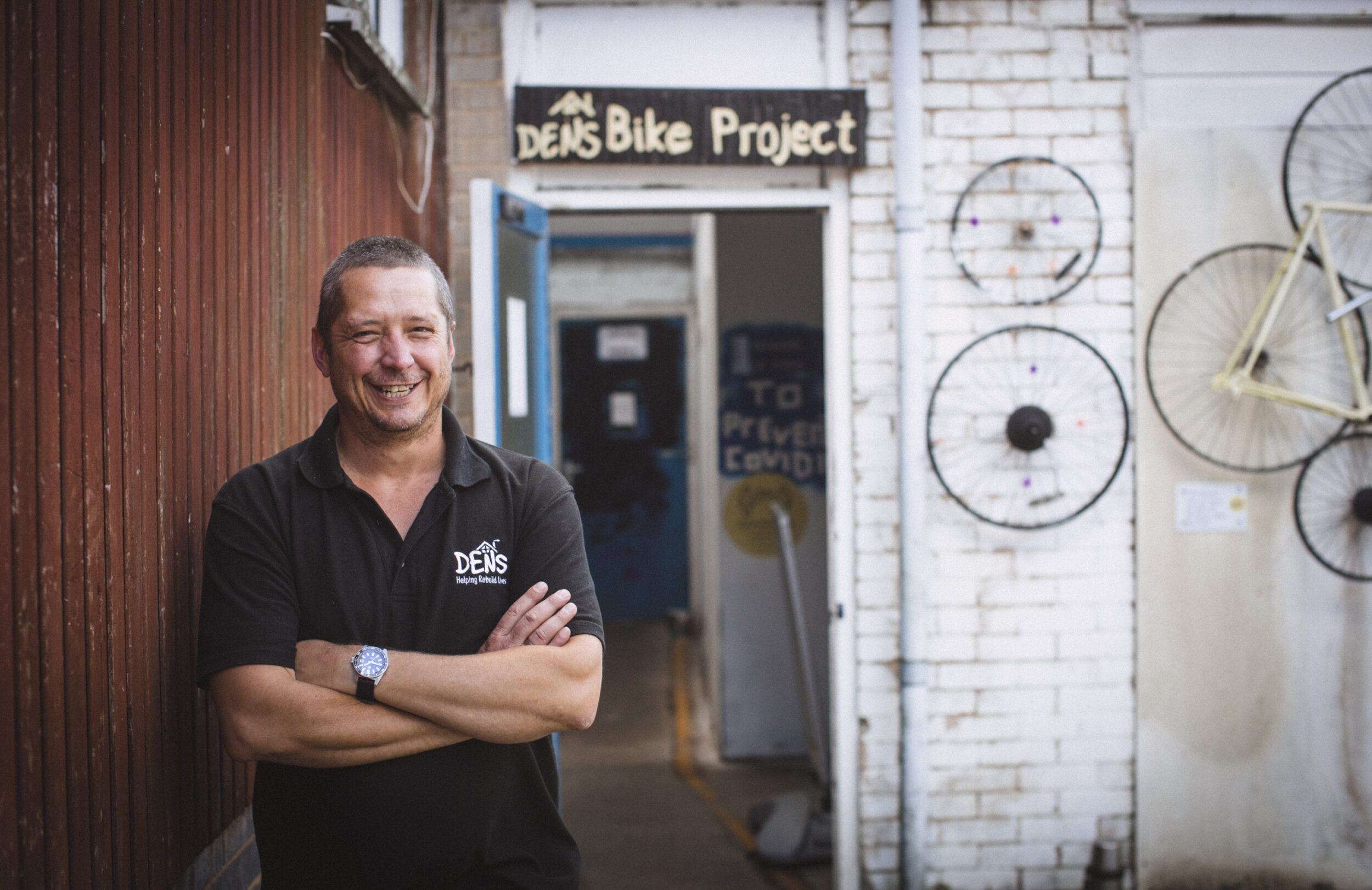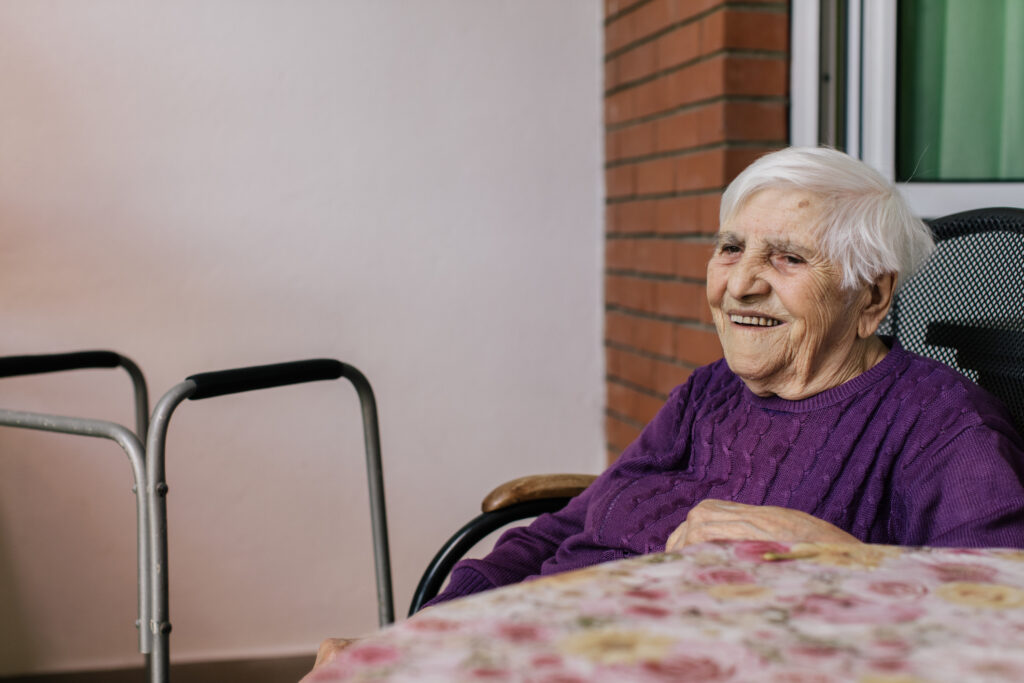
A Head of Finance’s perspective: using loan finance to build a property portfolio
Homeless charity DENS wanted to buy a new property, but it was struggling to access a loan from a high-street lender. Thankfully, DENS approached Charity Bank. We spoke to Head of Finance, Trina Myatt, to find out more.
First off, why did you want a new property?
We manage a 44-bed hostel, called The Elms, on behalf of Dacorum Borough Council. When people are ready, they can move from the hostel into one of our shared houses. We rent seven of these move-on properties, either from private landlords or through the council.
We’ve now bought another move-on property using a loan from Charity Bank. We were originally intending to give one of our rented properties back after the purchase. But for the moment, the demand is there, so we’re keeping it as an extra property.
What made you decide to move into ownership?
It’s always been our aim to build a property portfolio – we’ve seen other charities move into an ownership model successfully. We’re already responsible for the maintenance and renewals of some of our rental properties, so we’ve got experience of that side of ownership already. And of course, if you don’t own, you’re spending money on rent instead.
Last year, we had a fantastic response from the community and local businesses due to COVID-19, so our cash balance actually increased and we had money for the deposit. And we felt confident that it was the right time to buy. It will help to strengthen the charity long-term. We’re looking to buy one or two more properties as well. It just seems the right thing to do.
How do the loan repayments compare to the rent you would otherwise be paying?
The loan repayments are comparable to the rent that we’re paying on our other properties. So, we’ll be adding an asset to our balance sheet without any extra cash outlay.
For the next property we buy, it might be a slightly different situation. But we’ll still be paying off the capital, and the interest should be less than we’d be paying in rent.
Why did you choose Charity Bank for your loan? Did you approach anyone else?
Charity Bank was recommended by our Chair of Trustees. I did approach a general mortgage advisor, but they were struggling to find somebody that would lend us the money because of our charity status and particular circumstances. So I approached Charity Bank and we had a chat. They understood our services and what we wanted to do.
Did you have any concerns about taking out a loan?
This is the first time DENS has taken out a loan like this, and there was concern from some of the trustees about their responsibilities. Personally, I’m involved in property development myself, so it wasn’t a big issue. And I’m confident! DENS had the cash available and the experience of managing properties, so I wasn’t too concerned.
How did you reassure the trustees?
We just reassured them that we’re a limited company so they’re not personally liable for the loan. Plus, it’s a sensible purchase so not a great risk.
I believe there was an issue with the first property you wanted to buy with the loan. Can you tell us about that?
We thought we’d found an ideal property last year, but once we got a little bit further down the line, we realised there was actually a covenant in place that would restrict the number of people that we could put in there. It’s for a single-family household only. And we were advised by the council that there was no way out of this covenant, and that another charity had actually gone through and purchased a similar property before realising that they couldn’t get around the covenant. So, we were lucky that we realised the situation quite early on and pulled out of the deal.
Was the change of property an issue at all when it came to getting the loan?
No, there were no issues.
How did you find the process of applying for the charity loan?
It was quite challenging in terms of the volume of paperwork needed. Charity Bank have their own legal team, and a lot of things had to be done in exactly the right way. Board resolutions did go back and forth quite a few times before the wording was acceptable. But our contact in Charity Bank’s Lending Services team was very helpful.
It was definitely helpful having one point of contact. Sue responded quickly and reassuringly, and she held my hand through a lot of the legal jargon. She helped us with the wording and responded to my questions quickly.
Would you recommend that other charities and social enterprises consider Charity Bank when they need a loan?
I would recommend Charity Bank. They understand the third sector and totally supported what we were wanted to do. We struggled to get that understanding from the private sector, which pretty much dismissed us straight away.
It is a bit daunting when you’re first faced with writing a board resolution and dealing with all the legal jargon; you don’t know where to start. But Charity Bank provided templates, support and reassurance to get us through the loan process.
I think it helps to have a bank that understands the needs of your specific charity. Charity Bank obviously have a lot of experience in the homeless sector. My relationship manager had dealt with other similar charities in different parts of the country, so we didn’t have to start from scratch to explain what we were trying to do. They just got it and supported us.
And what’s next for DENS?
We’re looking to purchase more properties. We’re quite keen to build our portfolio. We’ll give up some of the rental properties if needs be, but our local council has implied there’s going to be an increase in demand. And nationwide there’s a drive to increase the number of move-on properties. So we’re intending to start looking for another property almost straight away.
If your charity or social enterprise is keen to grow your property portfolio, please contact our loans team on 01732 441919.
About Charity Bank
Charity Bank is the loans and savings bank owned by and committed to supporting the social sector. Since 2002, we have used our savers’ money to make more than 1400 loans totalling over £605m to housing, education, social care, community and other social purpose organisations.
Nothing in this article constitutes an invitation to engage in investment activity nor is it advice or a recommendation and professional advice should be taken before any course of action is pursued.


